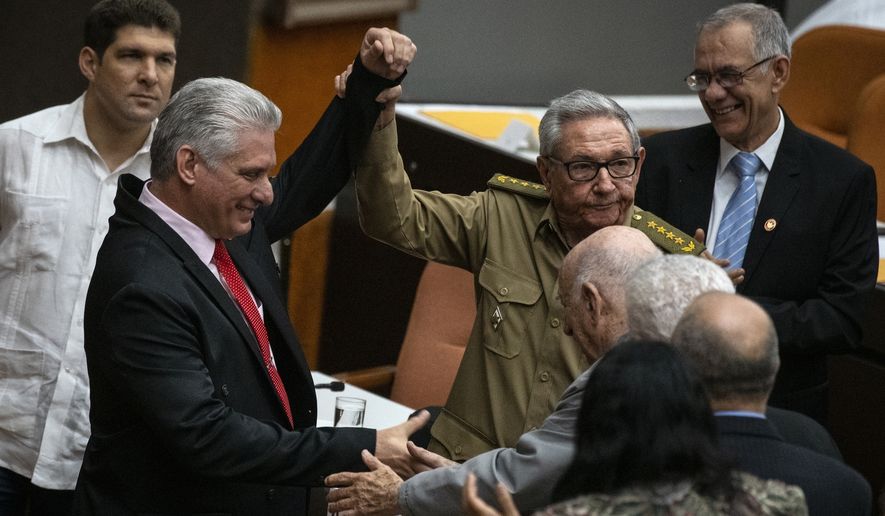The Cuban government’s heavy-handed attempts to quash religious freedom, notably in a 2019 change to the Cuban constitution, have led to a series of abuses against the island nation’s religious adherents, according to a new report from the U.S. Commission on International Religious Freedom.
The USCIRF survey tied Cuba’s escalating religious repression to the selection of Miguel Diaz-Canel as president by the ruling Communist Party in April 2018. Soon after taking office, Mr. Diaz-Canel began lobbying for changes to the constitution that activists feared could weaken religious protections.
“Alongside the constitution, the government uses a restrictive system of laws and policies, surveillance, and harassment to control religious groups and suppress the freedom of religion or belief,” USCIRF said in the updated analysis Tuesday.
Specifically, the new constitution removed “prior specific references to freedom of conscience and to changing religious belief,” the USCIRF report said.
According to the USCIRF report, the Cuban government has required religious groups to register with the Office of Religious Affairs, which “holds broad, largely unchecked power.” Membership in unregistered groups is punishable by fine or imprisonment, while registered groups must get permission for any activities outside of a typical worship service, leaving much to the discretion of the regime.
Among other offenses, the USCIRF report accused Cuba of revoking church construction permits previously granted under the old constitution. The historic Maranatha Baptist Church, for example, obtained a construction permit in 2017 to build a new church for its expanding membership. In April 2019, the Office of Religious Affairs rescinded the construction permit, stunting progress on the new building.
Six months later, however, the Council of Ministers, the highest ranking administrative and executive governing body, reversed the ORA’s decision. But the U.S. panel says the incident illustrates the deep ideological prejudice and discrimination against religious believers in Cuba.
“This is an example of the high-level control that the [Cuban Communist Party] can exert over the affairs of religious groups,” the report said.




Please read our comment policy before commenting.